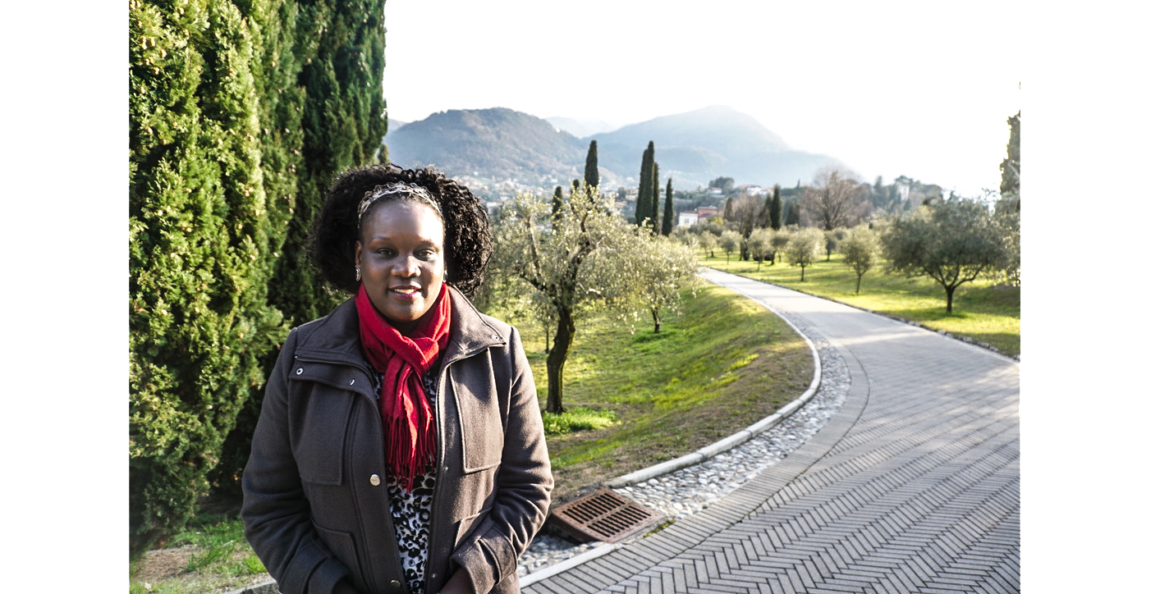1. Tell us about yourself, what do you do in health?
I am Isabella Epiu, Medical Doctor, Specialist in Anaesthesiology and a USA National Institute of Health (NIH) Global Health Fellow with the University of California Global Health institute (UCGHI, USA). I have 7 years’ experience in research of maternal morbidity and mortality in East Africa gained through my Masters of Medicine program where I conducted a multi-national survey in Kenya, Tanzania, Uganda, Rwanda and Burundi. I later assessed 64 Hospitals in Uganda and have since won several awards; 2018 top 10% ISPOR research award – International Society of Pharmacoeconomics and Outcomes Research, the 2016 SOAP Media Award from a USA based Society of Obstetric Anesthesia and Perinatology, the 2014 National Institutes of Health award as a Fogarty Fellow in Global Health with University of California Global Health Institute (USA), and 2013 World Federation of Societies of Anaesthesiologists Research Award. I am also a Mandela Washington Fellow, President Obama’s Flagship program for Young African Leaders (YALI). I am the founder and Director Health Solutions International, an organization that is dedicated to advancing healthcare standards to save lives. www.healthsolutionsinternational.org
2. What are you most proud of?
Growing up in a rural community in Eastern Uganda, I studied hard was the best girl in my district and made to one of the highest ranking high schools in our capital city Kampala, Uganda. Here I grew interest in deserving my community by becoming a Doctor. I pursued this dream diligently and was honoured to be awarded a government scholarship for my Bachelor of Medicine at Makerere University. As a recently graduated doctor I reached out to the community volunteering as medical director at an orphanage for aids victims in Eastern Uganda. As part of my specialist training for Masters of Medicine in Anaesthesia, I evaluated provision of safe anaesthesia care to the mothers and babies across our community. I continue to work to reduce deaths of mothers and babies across East African Community through improvements in anaesthesia safety.
In 2012 with the support of my mentors, I set out to assess the major referral hospitals in East Africa, specifically looking for their capacity to provide safe obstetric anaesthesia. I did not have to look far to find a profound lack of safe anaesthesia as major cause of mortality in our region. I presented this data to the University of California Global Health Institute, and even as a doctor thousands of miles away in Africa, working in a specialty that has never before been funded by them, I was awarded a Postdoctoral Global Health Fellowship to conduct further research in Uganda. I now work hard to use this information to develop new programs to improve the provision of safer healthcare across East Africa and other developing countries.
Selected on the basis of compelling individual work and significant accomplishments within their field, I was among fifty Rockefeller Fellows identified to spend a month at the Bellagio Center focused on addressing some of the world’s most pressing challenges. Once in residence, Fellows focused on issues ranging from improving equitable access to health care, to building the resilience, studying the impact of globalization on local culture and tradition. I worked on “Promoting Universal Health Coverage by increasing access to safe anaesthesia”; working towards safe motherhood to achieve equity in health care. The Rockefeller Foundation Practitioner Residency is for senior-level policymakers, nonprofit leaders, journalists, private sector leaders and public advocates with ten or more years of leadership experience in a variety of fields and sectors. I am excited to have participated in the multi-disciplinary forum with forum with leaders in science and technology and other fields.
3. Which one thing do you wish you’d done differently?
Sometimes I wish I had the power to turn things around for better maternal and neonatal health in Africa. I strongly believe that no mother should die while giving life.
4. What are some of biggest challenges you have faced? How did you overcome them? What are some of the lessons learnt?
Being a woman, growing up in Africa, struggling through education and emerging as Global Health leader has been challenging. However, with the support of mentors, several friends and organizations, our work is now internationally recognized. I dream of a day when all girls in Africa will be empowered and no mother will die while giving life.
5. What are some of the opportunities you see for women in health on the African continent?
Africa is brimming with investment potential and economic growth is spurring on the continent. With the vast landmasses & abundant natural resources we also have the worlds youngest population: 70% of Africans younger than 30 years, and in several countries the women outnumber men. To create an enabling environment & attract investment there is urgent need to build institutions that work; systems of leadership and good governance.
For sustainable development on the continent, this growth needs to trickle down to the younger population, and particularly younger women. There is need to create platforms for engaging political leaders & advocate for policies that promote young women in order to translate the vast wealth of Africa into sustainable development.
6. What advice do you have for other women in health
I advise women in health in Africa to be united, to believe in themselves and strive to acquire highest level of education and essential skills and knowledge so that they are well equipped for key leadership positions on the continent.


Leave a Reply